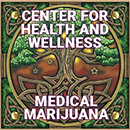Florida Medical Marijuana for Seizure Patients
About epilepsy
Did you know that at least 150,000 new epilepsy cases are diagnosed each year and at least 1 person in every 26 will develop epilepsy in their life? Actually, around 2.2 million Americans are living with epilepsy. Seizures are not a disease – they are symptoms of brain disorders and diseases such as brain tumors and chemical imbalances.
A seizure results from surge of electrical activities in the brain that cause an imbalance in the brain cell activities. Severity of seizures ranges from the hardly noticeable to the incapacitating. Some triggers that cause seizures include bright or flashing lights, drug use, alcohol, low blood sugar, and stress.
Even though a variety of medications reduce frequency and prevents spread of seizures, their side effects are undesirable. Most of them cause dizziness, fatigue, appetite loss, sleep problems, headache, vomiting and nausea. Long term use can even cause serious complications in the entire body.
About medical marijuana
People use many names to refer to marijuana but the most common name is cannabis, which is the Latin name used by pharmaceutical companies and botanists. The word “marijuana” refers to the female flowers and leaves of the cannabis plant. The term “medical marijuana” refers to the marijuana plants used in the medical world.
How medical marijuana might help cure epilepsy
Laboratory studies show that cannabidiol (CBD), which is cannabis non-psychoactive compound, might be helpful in seizure control. You should keep in mind that conducting a study is hard because the available marijuana is limited and the federal regulations limit access to cannabidiol. Increased time and financial constraints hinders success of the studies.
The endocannabinoid system regulates several physiological functions to help attain balance in the body or homeostasis. Phytocannabinoids from cannabis plant, such as CBD and THC, have medicinal effects on ailments. By binding with the endocannabinoid receptors (CB1 and CB2 in the brain, immune system and the entire body), they are able to control seizures.
Delta9-tetrahydrocannabinol, THC, has also shown promising effects as an anticonvulsant and an anti-epileptic. THC also produces euphoric effects related to cannabis products. Cannabidiol (CBD), which is a non-psychoactive cannabinoid derived from cannabis also helps in seizures control. And because CBD prevents THC from binding, it eliminates or reduces psychoactive effects that result from THC. The strong combination works well in combating seizures.
Scientific studies that support use of medical marijuana
A study conducted in Mexico in March 2017 showed that around 17% of participants observed 100% relief of symptoms while another 53% of individuals suffering from Lennox-Gastaut, a form of childhood epilepsy, observed 75% reduction in symptoms.
In another study, the researchers treated epilepsy patients and healthy adults with cannabidiol or a placebo. Even though none of the participants reported adverse side effects, 7 epileptic participants out of 15 reported improvements in symptoms while 4 of the patients reported living a completely seizure-free life.
A study that involved children with Dravet and published on the New England Journal of Medicine showed that cannabidiol could decrease seizure frequency by 39%. Actually, marijuana has helped most people control their epilepsy symptoms and some other seizure disorders and it might be a solution for you or your loved one.
Which are the side effects of cannabis?
Marijuana targets some parts of the brain particularly those involved with memory, pleasure, coordination and concentration. Due to that, it might affect your thinking and feelings. Some of the side effects users of medical marijuana might experience include:
- Lack of coordination
- Changes in the mood
- Trouble solving problems and thinking
- Increased appetite
- Urinary retention
- Difficulty concentrating
- Constipation
- Dizziness
- Red eyes
- Slurred speech
- Slower reaction time
- Dry throat and mouth
- Lethargy
Marijuana interactions
Before using medical marijuana, you should inform your doctor about any other drugs you are taking. That includes over the counter drugs, dietary supplements and prescription drugs that might interact with the marijuana and cause problems. Interaction with amphetamines and cocaine might increase heart rate, increase the blood pressure and even damage your heart muscles.
